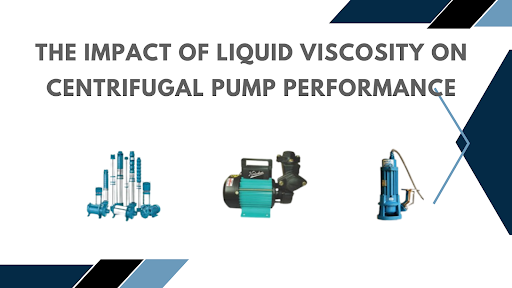
Pumps do not operate with the same efficiency and effectiveness with all liquids. One of the most important characteristics of the liquids that impact pump performance is their viscosity. VEMC is a leading Kirloskar pump authorised dealer based in Mumbai and in this blog, we tell you about the impact of liquid viscosity on centrifugal pump performance.
Definition and units of liquid viscosity
Let’s first try to understand what viscosity really means. In simple terms, viscosity can be thought of as the thickness of a liquid. However more technically, it refers to the resistance to flow at a given temperature. At the molecular level, it represents the interaction (more specifically friction) between molecules in a particular liquid. Higher viscosity means a liquid is thicker, that is, it offers more resistance to flow and hence requires more energy to be displaced from one point to another.
Unit of viscosity: Viscosity is measured in Newton-Second per Square Metre.
How viscosity affects pump efficiency and flow rate
As stated above, more viscous liquids are harder to move due to the greater resistance to flow they offer. As such, higher viscosity has a negative effect on the performance of a pump in terms of flow rate as well as head. This means if you are looking to displace highly viscous liquids such as oil or honey, you will need a really powerful pump.
Selecting the appropriate pump type and size for liquids with different viscosities
Let’s now take a look at which pumps are suited for which levels of viscosity.
- For low viscosity fluids such as water, centrifugal pumps are the best. However, even with a slight increase in the viscosity of the liquid, centrifugal pumps’ performance may be affected.
- For highly viscous liquids such as oil or honey, positive displacement pumps are most suitable. These can be run at lower speeds and varying flow rates to make up for the thickness of the liquids.
- Finally, peristaltic pumps can handle both high as well as low viscosity liquids with relative ease. These are suited for repeatable dosing applications and can run dry without any risk of pump failure.
Other considerations for highly viscous liquids
Apart from choosing the right pump types for the right levels of viscosity, you must also be mindful of the ancillary setup such as suction and piping. For highly viscous liquids, make sure there is no restriction on the suction end. Also, for such liquids, the pipework size must be larger to compensate for the friction loss or extra drag.
If you’re still not sure which pump is best suited for your liquid type, we are here to help you out. Feel free to speak to our experts by calling on 022 43436655 or emailing us at marketing@vemc.co.in. VEMC is the leading Kirloskar pump dealer based in Mumbai with over 72 years of rich industry experience in supplying and installing pumps, valves, fire panels and other high-standard electromechanical equipment.

